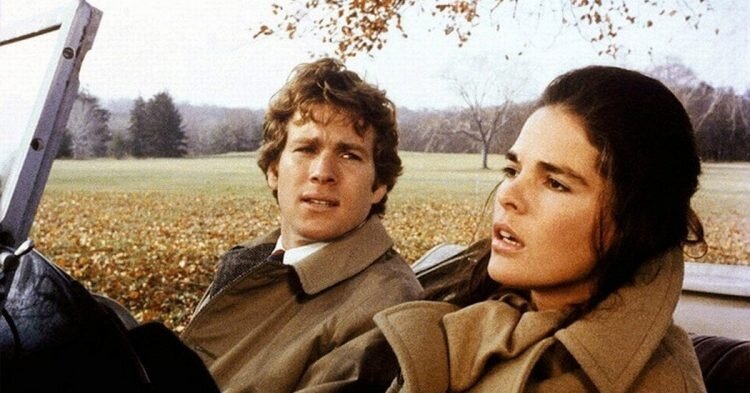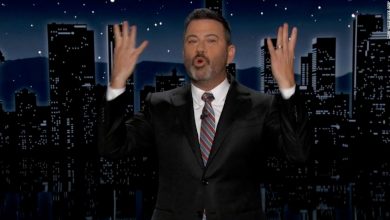Stream These Ryan O’Neal Movies

Ryan O’Neal’s death Friday at the age of 82 followed decades in which the actor was better known for his personal life (and struggles) than for his work. But few stars shone brighter in the 1970s, when O’Neal — originally known for his role on the prime-time soap opera “Peyton Place” — became one of the most bankable stars in Hollywood, and proved himself equally adept at drama, comedy and action. Here are a few of his finest films from that period, and where to stream them.
‘Love Story’ (1970)
Rent or buy it on major streaming platforms.
Television-to-film crossovers were rare in the 1970s, and O’Neal only landed the role of Oliver Barrett IV, a Harvard blue-blood who falls in love with a working-class Radcliffe girl, after several bigger names had passed, and at the insistence of the screenwriter Erich Segal and O’Neal’s co-star, Ali McGraw. It’s easy to see why she fought for him; their chemistry is sweet but potent, and carries this lightweight story of young romance and terminal illness above its corny, weepy components. It became the highest-grossing movie of 1970. Critics were mostly unimpressed but The Times’s Vincent Canby praised O’Neal as “an intense, sensitive young man whose handsomeness has a sort of crookedness to it.” That’s an apt summary of not only O’Neal’s performance here, but also his entire appeal.
After the smashing success of “Love Story,” O’Neal teamed up with the director Peter Bogdanovich (himself white-hot off the success of “The Last Picture Show”) for the first of three memorable collaborations. “What’s Up, Doc?” paired O’Neal with Barbra Streisand in a rollicking homage to the screwball comedies of the ’30s and ’40s — specifically the Cary Grant-Katharine Hepburn team-up “Bringing Up Baby,” from which Bogdanovich lifted the central dynamic of, in his words, “an uptight professor and a screwy girl.” It was the perfect vehicle to showcase O’Neal’s range; his turn as the musicologist Dr. Howard Bannister was 180 degrees from Oliver Barrett IV, a study in frenetic farce that somehow never crosses the line from cartoony to caricature. His chemistry with Streisand was so potent that they reunited seven years later for the boxing rom-com “The Main Event,” and while its director Howard Zieff proved to be no Bogdanovich, the reunion affirmed that O’Neal’s skills as a light screen comedian were all but unmatched in the era.
‘Paper Moon’ (1973) / ‘Nickelodeon’ (1976)
Stream “Paper Moon” on Max. Rent or buy “Nickelodeon” on major streaming platforms.
In the meantime, Bogdanovich and O’Neal followed “What’s Up, Doc?” with this adaptation of the novel “Addie Pray,” about a con man crossing Kansas selling Bibles to widows, with his precocious maybe-daughter in tow. Bogdanovich cast O’Neal’s real-life offspring Tatum in the latter role, masterfully capitalizing on their built-in rhythms and spiky relationship; they’re wonderful together, and it’s a joy to watch O’Neal’s gleefully amoral swindler begin to begrudgingly care for the smart-mouthed kid. (Tatum would win the Academy Award for best supporting actress for the role — at 10 years old, the youngest winner of a competitive Oscar to date.) Three years later, Bogdanovich and O’Neal teamed up for the last time to make “Nickelodeon,” an affectionate valentine to the earliest years of Hollywood, inspired by Bogdanovich’s interviews with the legends of the silent era. It was not as well-received as their earlier pictures, but it remains a delightful mash-up of film history and slapstick comedy, with a charmingly seat-of-his-pants turn by O’Neal as an incompetent lawyer who stumbles into a career as a screenwriter and film director.
Some cynics were skeptical of Stanley Kubrick’s decision to cast the decidedly 20th-century O’Neal in the title role of his adaptation of William Makepeace Thackeray’s 18th-century-set novel. But Kubrick, as usual, saw something more in O’Neal — or perhaps he saw the link between his “Paper Moon” con man and the title character, a social-climbing rogue who uses his good looks to marry into considerable money. The actor’s razor-sharp comic timing was rarely so elegantly deployed, and he clearly relished the opportunity to turn his matinee-idol image on its head, deftly conveying a character ultimately undone by his own moral rot.
‘A Bridge Too Far’ (1977)
For his dramatization of the failed Operation Market Garden during World War II, the director Richard Attenborough gathered an eye-popping, all-star cast that included James Caan, Michael Caine, Sean Connery, Elliott Gould, Anthony Hopkins, Gene Hackman, Laurence Olivier, Robert Redford and Liv Ullman. That’s not an easy group to make an impression in, but O’Neal pulls it off. As Gen. James M. Gavin, one of the leaders of the American faction of the Allied operation, O’Neal takes a direct approach to the material, eschewing the theatrics of many castmates and honing in on Gavin’s straight-shooting style and somewhat cynical worldview.
As the ’70s rolled into the ’80s, O’Neal’s commercial successes grew more rare, and he found himself fronting fewer big movies — so he made his leading roles count. One of the strangest was this bleakly funny riff on hard-boiled crime noir, written and directed by Norman Mailer (adapting his own novel). “Tough Guys” is notorious in some circles for an out-of-context moment that went quite viral (a take that O’Neal reportedly begged Mailer not to use), but that grand, oddly melodramatic moment is indicative of the wild tonal ride that is “Tough Guys,” which feels like the bastard child of David Lynch, Douglas Sirk, Dashiell Hammett, and Mailer in the midst of a particularly rough hangover. O’Neal ends up being the steadying force of this unorthodox stew, and his grounded performance frequently keeps the picture from floating off into the ether.
‘Zero Effect’ (1998)
In the ’90s and through to the end of his life, O’Neal’s acting was increasingly consigned to television work and small supporting roles. But he turned out to be a fine character actor as well, and one of the best films of that period is this clever, melancholy mash-up of comedy, drama and mystery from the writer-director Jake Kasdan. Bill Pullman plays Daryl Zero, “the world’s most private detective,” a brilliant but reclusive Sherlock Holmes type; Ben Stiller is the Watson to his Holmes. O’Neal turns up as Gregory Stark, a millionaire who hires Zero to find the key to his safe deposit box. As is customary for such characters, there’s more to this man than meets the eye, and O’Neal bracingly does what only the best actors can do: he projects furtiveness, while seeming to have nothing to hide. That duality and complexity was part of what made him such a special and distinctive screen presence for so long.



